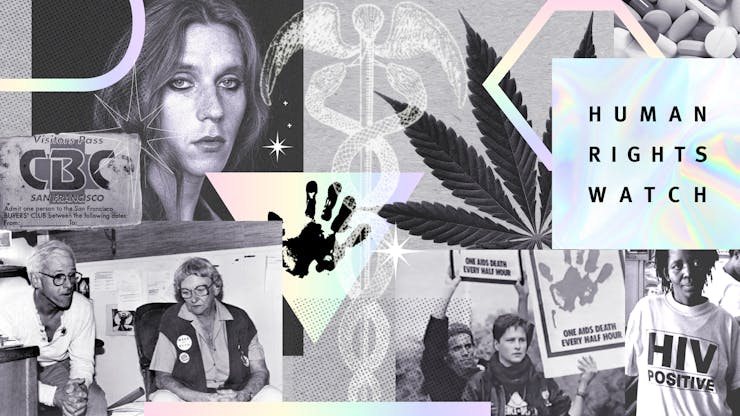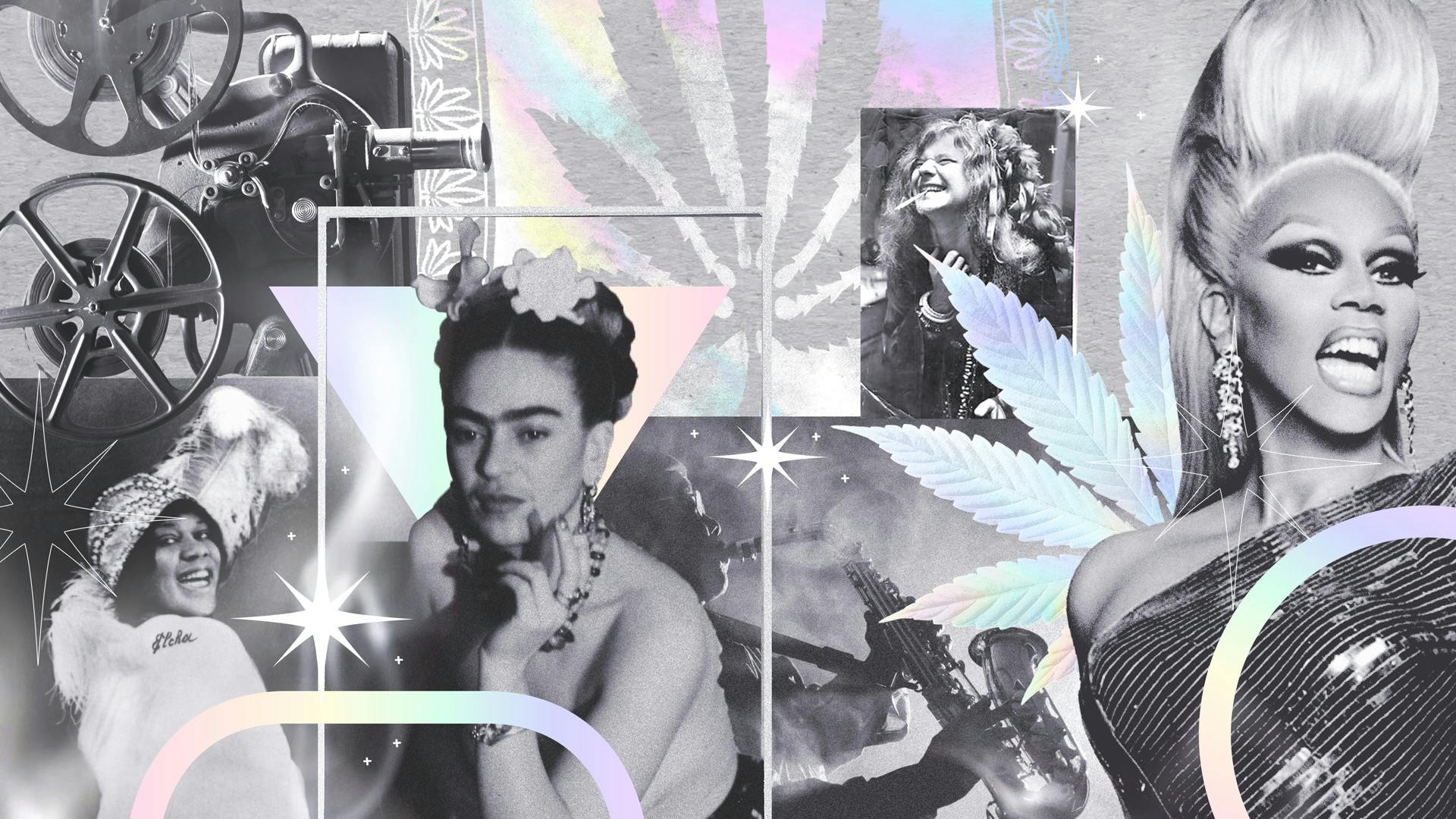When it comes to caring for ourselves and our community, cannabis has an important role in the past, present and future of LGBTQIA+ healthcare.
Healthcare is an important issue facing the queer community. That’s because we know how critical the care of our bodies, our minds, and our community is core to continued survival and success.
Queer people face unique healthcare resourcing and health challenges that deserve attention and support.
Unique health challenges faced by the LGBTQIA+ community:
- Physical and mental health-related challenges to HIV/AIDS
- Gender reconfirmation care
- Prominence of addictive recreational substances
- Mental health challenges related to trauma
Any discussion about cannabis without talking about its medicinal uses is incomplete. And when it comes to the health of queer people, cannabis plays an important role.
Cannabis in queer health & wellness

Only 16% of respondent institutions had comprehensive LGBT-competency training, and 52% had no LGBT-competency training at all.
Queer people, like many underserved communities, often struggle to find equal access to health care, good quality insurance, and financial stability; all of which can make health and wellness a struggle.
Queer people live in poverty at disproportionate rates, a number that’s driven particularly high by the struggles transgender people and queer people of color face, including barriers to housing and employment in addition to barriers to health care.
“LGBT individuals are twice as likely to be uninsured as non-LGBT individuals and many have difficulty finding providers who will treat them without passing judgment on their sexual orientation or gender identity or offer the services they need, particularly in rural areas. Some have difficulty finding providers who will treat them at all.”
Human Rights Watch, 2018
Some medical establishments turn a blind eye to the intricacies that come with treating queer bodies and needs or provide little guidance to the care they need.
Shop highly rated dispensaries near you
Showing you dispensaries nearAccording to a survey of American medical schools that quoted in a Human Rights Watch report, “The creation of LGBT competency modules in physician training programs is a relatively recent development; a survey of US medical schools conducted in 2012 found that only 16% of respondent institutions had comprehensive LGBT-competency training, and 52% had no LGBT-competency training at all.”
For queer people, cannabis is a way to seek relief when medical professionals have been less than helpful. It’s been a tool to continue to try and maintain physical and mental health in a world that does not always protect them.
The front lines of early HIV/AIDS treatment

When looking at the disparity and challenges queer people have faced from the medical community, there is no example quite as devastatingly powerful as that of the AIDS crisis.
When members of the LGBTQIA+ community started dying from HIV/AIDS in the 1980s, America’s healthcare system and political machine largely turned a blind eye to the epidemic that would go on to kill hundreds of thousands of queer people.
In the void of medical care, national empathy, and viable treatment options; cannabis became a helpful tool for combating some of the worst complications and symptoms of HIV/AIDS. Cannabis consumption often helps boost patients’ appetites, reduce nausea, and ease muscle pain – some of the most common complications of the disease.
And of course there were poeple who advocated for both AIDS patients and cannabis. One of the earliest champions of cannabis legalization for medical use was Dennis Peron, an activist and early medical marijuana advocate.
Peron co-authored the first state-wide medical cannabis bill in California, Proposition 215 (aka The Compassionate Use Act of 1996). Peron also helped found the San Francisco Cannabis Buyers Club, the first dispensary in the United States, to help HIV/AIDS patients access medical marijuana.
Activists and early studies of HIV/AIDS treatment proved that cannabis could provide compassionate care for HIV/AIDS patients, helping medical marijuana become a more widely accepted option.
A tool for recovery

One does not need to have surgery (or hormones or any specific presentation) to be trans and completely valid in their trans identity. However, for many trans people, gender confirmation surgery is an important part of feeling authentically like oneself.
Among queer medical patients, no group sees as much healthcare discrimination as the trans community. These barriers often come in the form of access to and education around gender confirmation surgery.
Trans people who decide to pursue gender confirmation surgery have utilized cannabis for its assistance with pain relief and anti-inflammatory properties during the recovery process.
This was not only a DIY treatment in the early days of trans healthcare. Cannabis still serves as a pain remedy that helps aid in recovery and offers an alternative to addictive pills.
Quick tips for those considering marijuana use after confirmation surgery include:
- Don’t smoke right before your procedure.
- Plan to consume your cannabis without smoking it to keep oxygen flowing through the body.
- Discuss cannabis use with a doctor you trust before adding it to your post-surgery recovery plan.
A non-addictive answer for both pain and pleasure
Cannabis also offers an alternative pain aid and recreational enjoyment tool for LGBTQIA+ people that doesn’t come with a high risk of addiction.
Queer people are more likely to suffer from substance abuse and addiction to opioids, tobacco, and alcohol compared to straight and cis people. Because of this, it’s vital for many queer people to have options that help pain and do not include opioids.
The state of Illinois started the Opioid Alternative Pilot Program in 2019 to help people that had been prescribed opioids trade them in for a temporary medical marijuana card.
Programs like this can help people avoid opioid addiction or help recovering opioid addicts treat their pain without risking a relapse.
In addition to offering a less addictive clinical solution, weed also offers a recreational option for queer people who want an outlet for socializing or unwinding that doesn’t involve alcohol or pills.
A vital part of mental health and self-care
LGBTQIA+ people often struggle with mental health conditions such as depression, PTSD, and anxiety.
Cannabis has been widely reported to help those living with PTSD. And while there are still many studies that need to be completed on anxiety and depression, there have been some promising findings. As a note, however, you should be careful with mixing cannabis with medication, including with antidepressants.
With its relaxing qualities, cannabis is a flexible, vital tool for many wellness regimens. It’s just one more way that cannabis gives queer people help living a happier, healthier life.
Carving out a place for cannabis in queer health
As cannabis becomes more widely available, studied, and accepted, queer patients and LGBTQIA+ people can use it to help them get the care they need.
This Pride month, and every other month, it’s important to take time to take care of yourself, your people, and your community. And if weed is part of that journey for you, you’re in good company with millions of queer people who believe in its place in health and wellness.







